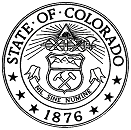![]() The information on this page is archived and provided for reference purposes only. It may be outdated or no longer maintained.
The information on this page is archived and provided for reference purposes only. It may be outdated or no longer maintained.
Coffman Strengthens Testing Requirements For Electronic Voting Machines
Coffman Pledges Testing Process Will Be “Tough, but Fair”
Denver, March 20, 2007 – After a thorough public comment period and a rigorous drafting process, in which IT professionals, computer scientists, university professors and concerned citizens and organizations participated, the Secretary of State has adopted stringent testing requirements for electronic voting machines used in future Colorado elections.
Electronic voting machines used in Colorado must be certified by the State; the Secretary of State’s office will recertifying electronic voting machines to these new testing requirements before the next election to ensure their reliability.
“The electronic voting machines used during our elections must protect our most sacred right – the right to vote,” said Coffman. “That’s why it is critical to have stringent security measures surrounding their use. Coloradans must have confidence in the technology used to conduct elections, and these new testing requirements will provide that confidence.”
The new testing procedures were adopted under the Secretary’s rulemaking authority and are known as Rule 45. The Rule is comprised of 46 pages of requirements for voting systems certification, including detailed security standards for all voting systems. The Rule was adopted by the Secretary of State in response to a court order, Conroy v. Dennis, no. 06CV6072 (Denver Dist. Ct.), and went into effect on March 16, 2007.
Under these new testing procedures, the certification process will now involve 437 functional tests that a voting system will need to pass in order to be certified for use in Colorado. During the recertification process, the Secretary of State’s office will produce almost 2,000 pages of documentation in the evaluation of each voting system.
The Secretary of State issued a twenty-two page document along with the testing procedures, to provide the public with background on Colorado’s electronic voting equipment; an analysis of widely known reports evaluating threats and vulnerabilities to electronic voting; and, the recommendations made by an expert panel, convened by the Secretary of State to provide input on the drafting process.
“This was a tremendously thorough process,” Coffman said. “From my first day in office, improving the security standards surrounding electronic voting machines in Colorado, and making these machines more trustworthy, has been a top priority.”
The four electronic voting systems currently deployed throughout Colorado’s 64 counties – Hart Intercivic, Diebold Election Systems, Sequoia Voting Systems, and Election Systems and Software (ES&S) – may now apply for recertification; a process that may take up to 90 days to complete.
“The recertification process will be tough, but fair,” Coffman said. “My focus is on ensuring that the electronic machines used in our elections are secure, are able to accurately count every vote, and that the results can be verified. Electronic voting machines that meet this threshold will be recertified for use in Colorado’s elections.”
Background Documentation




 Menu
Menu  Search
Search 
